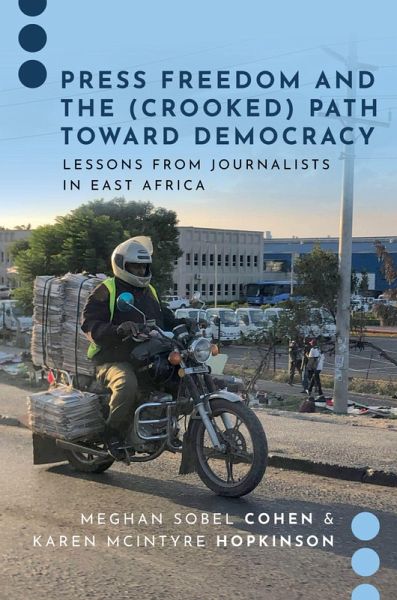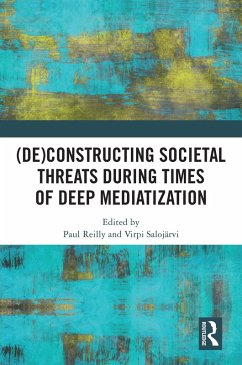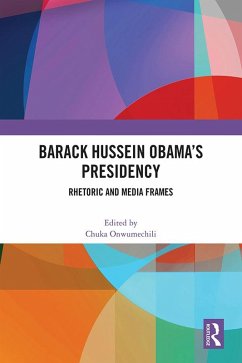
Press Freedom and the (Crooked) Path Toward Democracy (eBook, ePUB)
Lessons from Journalists in East Africa

PAYBACK Punkte
7 °P sammeln!
Media scholars generally suggest that as people gain access to mass media content, they increasingly support democracy and reject authoritarian rule. Much of the scholarship classifying global media systems has overlooked the world's most developing nations, and among those that have included developing nations, there exists a misguided premise that nations develop in a linear fashion: from non-democracy to democracy, and from a restricted press to a free press. This book shows that much of what scholarship depicts about media systems of developing nations is wrong. In reality, the ebb-and-flo...
Media scholars generally suggest that as people gain access to mass media content, they increasingly support democracy and reject authoritarian rule. Much of the scholarship classifying global media systems has overlooked the world's most developing nations, and among those that have included developing nations, there exists a misguided premise that nations develop in a linear fashion: from non-democracy to democracy, and from a restricted press to a free press. This book shows that much of what scholarship depicts about media systems of developing nations is wrong. In reality, the ebb-and-flow of political change, democratization and backsliding calls for more historically informed views of media systems that do not fit into the confines of existing theories. Using the perceptions of journalists in Rwanda, Uganda, and Kenya to examine mediascapes at varying stages of development and democracy-building, this book examines the advancement of media and press freedom at varying stages of national development. Drawing on qualitative fieldwork and a cross-national survey, this book provides an updated state of press freedom in these three countries and shows how a nation's political and cultural intricacies complicate traditional media development frameworks and notions of press freedom. A detailed set of considerations are put forth for understanding media systems outside the Western world; specifically, that each country's distance from conflict, political benchmarks, international linkages, and civil society strength are central to understanding its degree of press freedom, development and democratization.
Dieser Download kann aus rechtlichen Gründen nur mit Rechnungsadresse in A, B, BG, CY, CZ, D, DK, EW, E, FIN, F, GR, HR, H, IRL, I, LT, L, LR, M, NL, PL, P, R, S, SLO, SK ausgeliefert werden.













